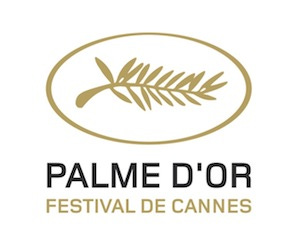Is English becoming the de facto language of Cannes films?

at The Times asked me last week if English language films are becoming more common in the official competition at the Cannes Film Festival. He quoted the festival's head, Thierry Fremaux, admitting that English is now the international language of film and "comparing it to Esperanto, the artificial language designed to unite nations".
So I took a look at the data on all 1,660 films which have been selected to screen 'In Competition' at the Cannes Film Festival from when it started in 1939 to this year. In summary...
Since 1939, the shortlisted films in Cannes have been in 91 languages
English is the most frequently used language, featuring in 38% of Cannes shortlisted films (1939-2015)
In the past five years, English has been used in 57% of Cannes films
French is the second most common, then Italian, Spanish, German and Japanese.
72% of films have just one language. 16% have two, 8% three and 4% four or more.
2010-15, 44% of shortlisted films from France were not in French
During 1940s 100% of German films were in German, whereas by 2010s that has dropped to 24%
What is the language of Cannes?
I found 91 different languages used across all Cannes films (96 if you include sign languages). 72% of films have just one language. 16% have two, 8% three and 4% four or more.

Is English taking over as the language of Cannes?
English is the most frequently used language of Cannes, featuring in 38% of Cannes shortlisted films. French is the second most common (24% of films), then Italian (12%), Spanish (11%), German (6%) and Japanese (5%).

Foreign films in (other) foreign languages
Last week I showed how films from France have been increasing dramatically over the recent decades, and now account for over half of all shortlisted films. So if French films are on the rise, how come the English language is also increasing?
Well, the answer is simple - more and more French films are being made in English. In fact, in the past five years only 56% of French films have had French as one of their main languages.
British and American films have stuck to their native shared language, with only 12% and 15% of their films in the past five years not being presented in English, respectively. The Germans have changed the most since the early days of the festival. During the 1940s all German films were in German, whereas by the 2010s that has dropped to 24%.

Notes
The raw data I used last week to analyse country of origin came from the official Cannes programs. However, the data I am using to determine country of origin this week comes from Wikipedia and IMDb as it was the only way I could cross-reference the different sites of data points. One would imagine that the Cannes festival guide has spent more time and attention researching their films than either Wikipedia or IMDb. This is due to the small number of films they need to check compared with the massive databases, and also because their content is not user-generated.
This means two things. Firstly, the country data from last week is not directly comparable with the country research in today’s article. Secondly, it’s possible there are a few misclassified films this week, whereas I’d be extremely surprised if the Cannes official data is wrong.


